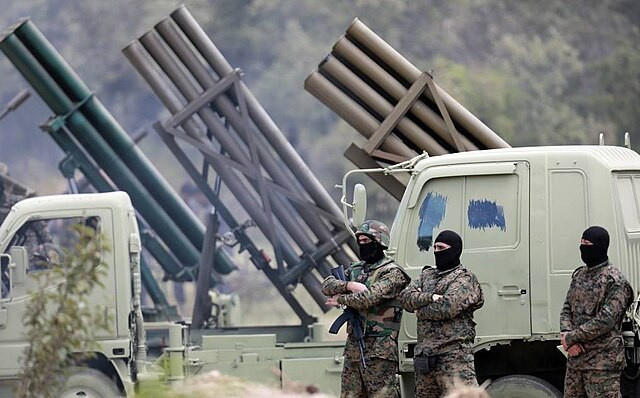Israel's escalating military campaign against Hezbollah in Lebanon has resulted in the deadliest day of the conflict since the 2006 war, with airstrikes killing 492 people on Monday, according to Lebanon's health ministry. The strikes, which targeted Hezbollah's military infrastructure, also left over 1,600 wounded, including women and children, in a conflict that shows no sign of abating.
Israeli Prime Minister Benjamin Netanyahu urged Lebanese civilians to heed evacuation warnings as the military expanded its operation across southern Lebanon and the eastern Bekaa Valley, where Hezbollah has maintained a stronghold for decades. "Take this warning seriously," Netanyahu said in a recorded message, encouraging people to move away from areas housing Hezbollah weapons.
Rear Adm. Daniel Hagari, Israel's military spokesman, stated that 1,600 Hezbollah targets were hit in Monday's operation. These targets included cruise missiles, rockets, and drones hidden in residential areas, an ongoing tactic that has drawn global attention. "Hezbollah has turned southern Lebanon into a war zone," Hagari told reporters, emphasizing that the strikes are meant to dismantle Hezbollah's military capabilities, which Israel estimates to include 150,000 rockets and missiles, many capable of hitting deep into Israeli territory.
Thousands of Lebanese are fleeing their homes following hundreds of Israeli strikes across Lebanon's east and south. The Lebanese Health Ministry says 492 people have been killed, including 35 children and 58 women — the deadliest day since the 2006 Israel-Hezbollah war. pic.twitter.com/0qlGKyeFv7 — DW News (@dwnews) September 23, 2024
The airstrikes come amid nearly a year of rising hostilities between Israel and Hezbollah, fueled by the war between Israel and Hamas in Gaza. Hezbollah, backed by Iran, has vowed to continue its strikes in solidarity with Hamas, raising fears of a broader regional conflict. Israel has been dealing with both groups since Hamas launched an unprecedented attack on Israel on October 7, killing over 1,200 people and abducting others.
In response to the airstrikes, Hezbollah launched 250 rockets and drones into northern Israel on Monday, further exacerbating the conflict. Lebanon's information minister, Ziad Makary, described Israel's warning messages to evacuate as "psychological warfare," although many residents fled south and east, fearing more strikes.
The international community is increasingly alarmed by the prospect of a wider war. U.S. President Joe Biden expressed concern over the escalation, with White House Press Secretary Karine Jean-Pierre emphasizing that de-escalation is in everyone's interest. The U.S. has stationed 40,000 troops in the region to help contain the violence, and Pentagon spokesman Maj. Gen. Pat Ryder announced that additional forces were being sent as a precautionary measure.
UN Secretary-General António Guterres expressed his alarm at the rising civilian death toll in Lebanon, with thousands displaced due to Israel's aggressive campaign. "The situation is escalating dangerously," Guterres warned, calling for immediate international intervention to prevent further bloodshed.
Israeli officials have indicated that the current operation may extend into a ground invasion if necessary. Lt. Gen. Herzi Halevi, Israel's military chief, described the airstrikes as a "proactive defense operation," targeting infrastructure built by Hezbollah over the past 20 years. "We are not looking for wars, but we are prepared to do whatever is necessary," Halevi said, underscoring the serious threat posed by Hezbollah's missile and rocket stockpiles.




